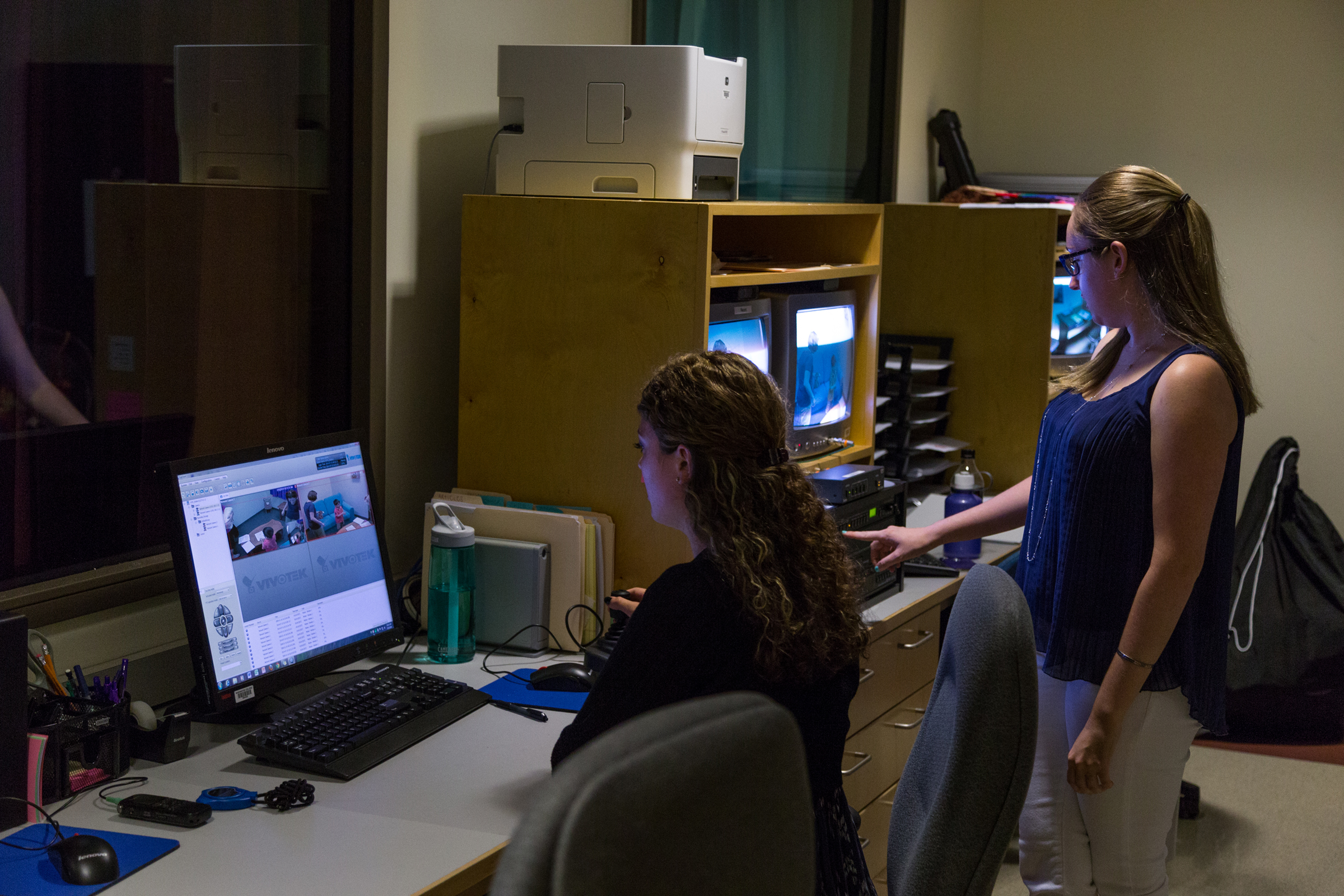

Experimental Psychology
The Experimental Psychology Track is designed to provide the broadest exposure to all disciplines in psychology. It includes a natural science course sequence, a statistics course sequence, several psychology laboratory courses, a choice of non-laboratory elective coursework, and the senior capstone experience.
Throughout the curriculum, the emphasis is on empirical testing of theoretical psychological models. Students graduate with the quantitative skills required for conducting and evaluating psychological research.
This track is recommended for those students who desire a broad background in psychology, for those contemplating careers in such fields as experimental psychology and social psychology, or for those who wish to double major in psychology and another discipline (e.g., art, English, philosophy, sociology, etc).

Dr. Tia Murphy
Associate Professor of PsychologyPSY 112. General Psychology II
PSY 202. Lifespan Development
PSY 209. Statistics and Research Design I
PSY 294: Prosocial and Moral Behavior
PSY 302. Advanced Developmental
MEET PROF. MURPHYPSY 112. General Psychology II
PSY 209. Statistics and Research Design I
PSY 221. Social Psychology
PSY 231. Personality
PSY 321. Experimental Social Psychology
MEET PROF. MCKILLOP
Experimental Psychology Track Requirements
Students need to have an understanding of basic biological, chemical, and/or physical science in order to have greater context for evaluating psychological phenomena. Students must take one of the following sequences:
- BIO 111 and 112. General Biology
An introduction to living systems. Topics studied include biomolecules, cell structure and function, metabolism, genetics, molecular biology, diversity of life, physiology of plants and animals, evolution, and ecology. Lectures on selected topics will be supplemented with problem-based learning opportunities as well as discussions of current events and selected papers from recent scientific literature. The laboratory complements the lecture and provides an introduction to experimentation and communication of experimental results. Students also conduct an independent research project. Opportunities to attend research presentations and visit outside research facilities are provided. - CHE 120 and 140. Chemical Principles of Organic Molecules AND Reactions of Organic
Molecules
Provides a foundation in the fundamental principles of chemical structure and reactivity of organic molecules. Key topics in CHE 120 include atomic and molecular structure, intramolecular and intermolecular forces, organic functional groups, thermochemistry, acid/base equilibria, kinetics, and basic organic reaction mechanisms. Key topics in CHE 140 include the reactivity of organic molecules, including aliphatic and aromatic hydrocarbons, their halogenated derivatives, and molecules containing heteroatoms such as oxygen, nitrogen, and sulfur, alone or those incorporated in biologically relevant molecules. - PHY 111 and 112. General Physics
A calculus-based introduction to physics for further study in the physical sciences and engineering. Mechanics: kinematics and dynamics of particles, conservation laws, the law of universal gravitation, oscillations, and fluids. Thermodynamics: internal energy, heat, work, 246 Physics entropy and their statistical foundations. Waves: wave propagation, superposition, interference, and physical and ray optics. Electric and magnetic fields: Coulomb’s law, Gauss’s law, electric potential, steady currents, magnetic forces, Ampere’s and Faraday’s laws
Students must complete the six core courses required for every psychology concentration. These courses cover an introduction to general psychological concepts, methodological practices in behavioral sciences, and evaluation of inferential statistics
- PSY 111 and 112. General Psychology
An introduction to the scientific study of behavior and mind, embracing all aspects of human experience. Topics include the anatomical and functional organization of the nervous system, consciousness, learning, memory, development, emotion, social interactions, psychopathology, and society and culture. This course surveys the methods and major findings of the various fields of psychology. PSY 111 introduces the student to the cognitive, neurological, and biological aspects of psychology in addition to basic research methodologies. PSY 112 covers the clinical/counseling, developmental, personality, and social aspects of psychology. - PSY 209. Statistics and Research Design I
Consideration of sampling theory, the design of experiments, and the analysis and presentation of data with emphasis on correlation, t-test, chi square, and the analysis of variance. A significant portion of the course is devoted to instruction in SPSS, a computer based statistical package. - PSY 309. Statistics and Research Design II
A survey of appropriate research designs employed in psychological research. Emphasis will be on inferential statistics such as regression, analysis of variance, and appropriate a priori and post hoc test of significance. - PSY 399. Junior Seminar
This required 2-credit course, normally taken during the second semester of the junior year, teaches foundational skills essential to psychology as a professions, such as ethics certification, writing in the discipline, and proposal development. By taking this seminar, students will have the opportunity to clarify achievement goals and develop academic and career plans. - PSY SCE. Psychology Senior Capstone Experience
Students majoring in psychology satisfy degree requirements by completing either an empirical research project or a theoretical review paper.
Majors must complete five of the following courses. Three of these must be laboratory courses († indicates a laboratory course), and there must be at least one course from each of the three disciplinary areas:
Experimental
- PSY 202. Lifespan Development
- PSY 205. Drugs and Behavior
- PSY 220. Human Sexuality
-
PSY 221. Social Psychology
-
PSY 231. Personality
-
PSY 302. Social and Personality Development †
-
PSY 321. Experimental Social Psychology †
Applied/Clinical
- PSY 233. Traditional Psychiatric Disorders
- PSY 234. Medical and Developmental Disorders
- PSY 304. Theories & Processes of Counseling
- PSY310: Human Neuropsychology †
- PSY 313. Learning & Applied Behavioral Analysis †
- PSY 320. Health Psychology †
- PSY 333. Psychological Testing
- PSY 433. Child Assessment †
Biological
- PSY 210. Biopsychology †
- PSY 305. Psychopharmacology †
- PSY 316. Cognitive Neuroscience †
- PSY 317. Sensation and Perception †
- PSY 319. Comparative Psychology †
- PSY 410. Neurosci. Research Methods
Thinking About Experimental Psychology?
Review the course checklist for the Experimental Psychology or visit the college catalog to learn more about the academic requirements.
Course Checklist